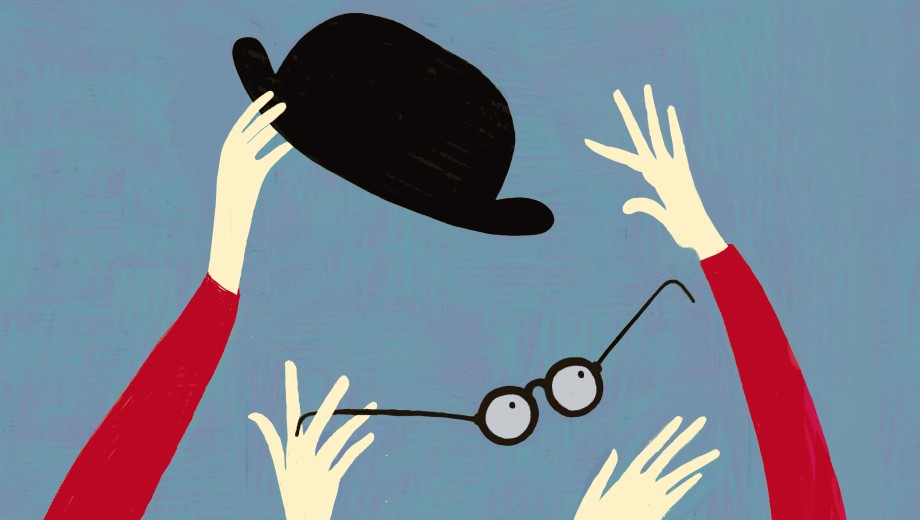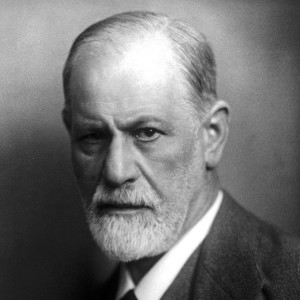From the vantage point of their particular disciplines, professors Jonathan Lear and Françoise Meltzer discuss the scholarly approaches they bring to the work of Sigmund Freud, why he shows up throughout the humanities, and why we should read him in spite of himself.
*****
Françoise Meltzer is the Edward Carson Waller Distinguished Service Professor and department chair in Comparative Literature. Her specialties are nineteenth-century French and German literature, literary theory, and psychoanalysis.

When I was finishing up my graduate career I started reading Jacques Derrida, the deconstructionist, and you can’t get very far in Derrida without running into Freud. Coincidentally, when I came to the University as a junior faculty member in 1975, I started dating the man I would eventually marry: Bernard Rubin [PhB’49, MD’53], a psychoanalyst. So my discovery of theory—and my passion for it, because that’s what I started teaching here—combined with wanting to know what this man I was going to marry was all about.
I was really taken by “French Freud”—that is, reading Freud, using his analytical tools, applied to his own writing. Over the years I have written a lot about Freud, Lacan, and psychoanalysis. I edited a special issue of Critical Inquiry, which then became a book, called The Trial(s) of Psychoanalysis [University of Chicago Press, 1987, 1988].
There’s a canon in what used to be called critical theory, or, let’s say, there are prophets—biblical, almost—Hegel, Heidegger, Kafka, Mallarmé, and of course Freud and Marx. When all this material was absorbed by French departments because of the theory craze, the rigidity between disciplines started becoming porous. So that you can’t say, “This is philosophy over here. Over here is literature. Over there is poetry.” Everything gets blurred, which is part of what makes it very exciting.
About 20 years ago I gave a talk to the College Core students about Freud and women. It’s always a fraught subject. Freud famously never got it, as far as women go. He’s very much a product of his time. I thought, in my naiveté, that I would show the students some of his sexist metaphors and how they functioned: how Freud—unwittingly, many times—uses them and doesn’t realize that he ends up out on a limb, really.
I wanted to set it up and say, “Here’s what Freud says about women, and here’s what we can do.” But I only got as far as, “Here’s what Freud says about women,” when all the students started raising their hands and said, “What are we even spending time on this guy for? He’s obviously an idiot, he’s a misogynist, who cares?”
First of all, he was brilliant. He had a vast array of knowledge, and he broke through a lot of taboos. Many people had written about the unconscious before Freud; he didn’t “discover” it. But what Freud does is sexualize the unconscious, and that was, for the Victorian era, very risqué. And he really helps lead the way toward understanding what dreams are.
I had a lot of wonderful experiences teaching Freud, mainly seminars, a couple with my husband: one on dreams and one called Freud and the Fairy Tale. And then we taught a course—I think only at the University of Chicago can you pull this off—in comparative literature, in divinity, and in the medical school. And it was called Ethics, Religion, Psychoanalysis. There were three of us: Bernie, me, and David Tracy from the Divinity School. It was really great.
*****
 Jonathan Lear is the Roman Family Director of the Neubauer Collegium for Culture and Society and the John U. Nef Distinguished Service Professor in Social Thought and Philosophy. Lear has written extensively on psychoanalysis; the second edition of his book Freud (Routledge) came out in January.
Jonathan Lear is the Roman Family Director of the Neubauer Collegium for Culture and Society and the John U. Nef Distinguished Service Professor in Social Thought and Philosophy. Lear has written extensively on psychoanalysis; the second edition of his book Freud (Routledge) came out in January.
I was led to Freud via my study of Aristotle, which I suppose was an odd route. But as soon as I read Aristotle’s claim in On the Parts of Animals that every realm of nature is marvelous if only we take the time to look, that we should not turn away with “childish aversion” from even the humblest realms, I knew those lines had something to do with me. Aristotle quotes Heraclitus approvingly that even in the kitchen divinities are present.
When I started reading Freud, I realized that his patients were ordinary bourgeois citizens of late nineteenth- and early twentieth-century Vienna. They came to him in pain, looking for help, and all he asked them to do was speak their minds, to say whatever came to mind without censorship or inhibition. He called this the “fundamental rule” of psychoanalysis. Who could have guessed that our understanding of the human condition could be so transformed by such a simple method, carried out on anyone who happened to walk into Freud’s consulting room? What is so stunning about the fundamental rule is that no one, absolutely no one, can follow it. I trained as a psychoanalyst because I wanted to see for myself the uncanny psychic forces that emerge “even in the kitchen.”
It is not surprising that Freud’s influence should show up throughout the humanities, for the humanities display a special posture of the mind. As scientists and social scientists we maintain a clear distinction between subject and object. But when we study the human humanistically, our very self-conscious understanding shapes who we are. Psychoanalysis is essentially the same movement of mind. If Freud is right that the unconscious will keep bursting forth, disrupting social conventions and commonly accepted self-understandings, one ought to expect psychoanalysis to command the attention of anyone who would like a truthful self-understanding of the unusual creatures that we are.
If you look at the ancient Greek project of philosophy, one thing Socrates, Plato, and Aristotle agree about is that you cannot do ethics without a robust psychology. Because the only way you could do ethics the way they want to do it is to have a convincing account of the psychology of a human being. I think Plato invented psychology. But it’s in the service of an ethical project. So I see Freud, whether he knew it or not, as in that tradition.
Freud is an extraordinary writer, and the way I like to teach him—and the way I write a book about him—is to start with the case histories and not with the theory. Because whatever theory is worth having, it’s something that ought to come out of the clinical material. And the clinical material is so rich. The case histories are very well written, and they bring out enormous complexity of what’s going on with these people.



Add new comment